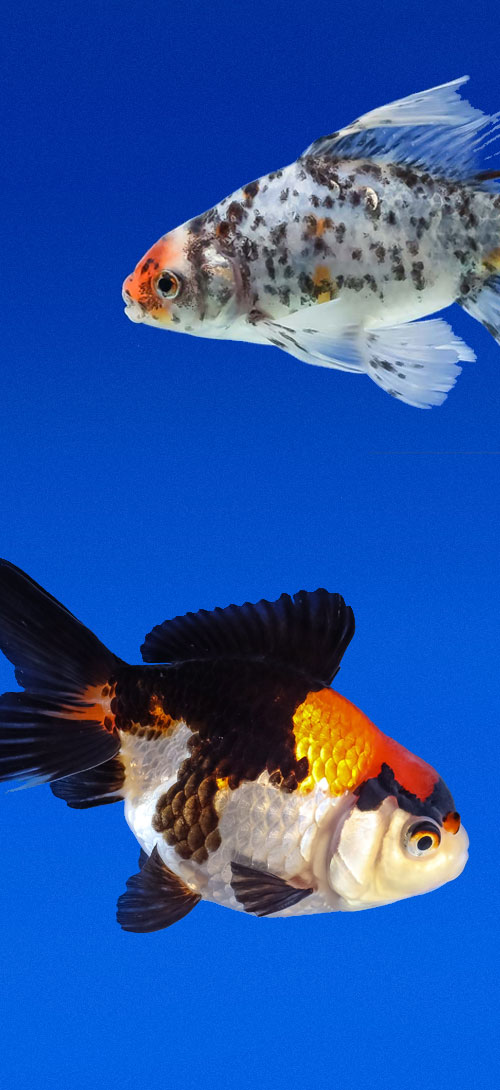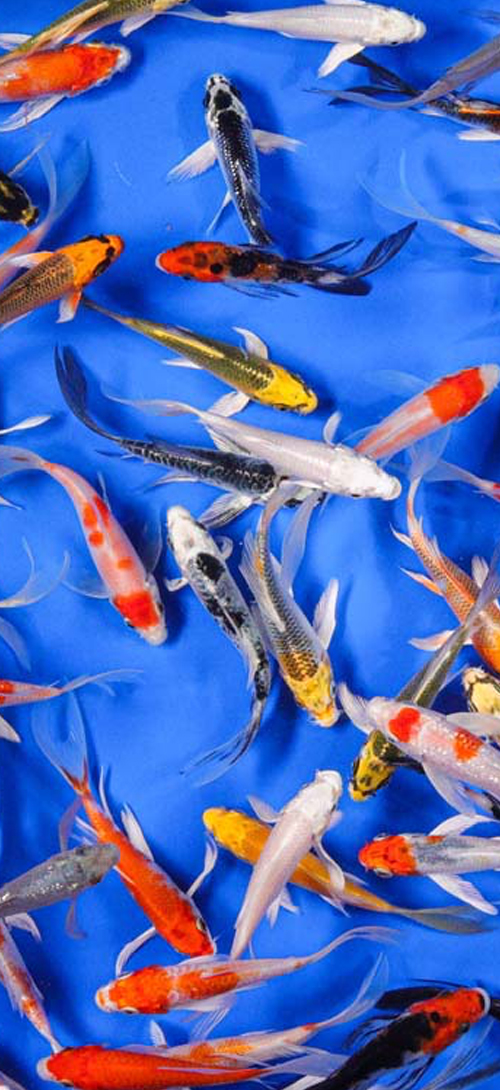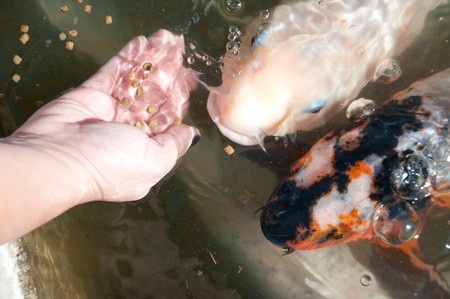Koi Fish Facts
Over and Under Feeding Your Koi Fish
One of the most rewarding aspects of being a koi owner is feeding your koi fish. It could be something about the act of caregiving and sustaining life or simply because koi love to eat and their enthusiasm is contagious.
Thanks to generations of trial and error, feeding your koi is now more science than magic. Being in a pond (and not in the wild) means that there are some repeatable basic feeding requirements to ensure that your living jewels stay both hale and hearty.
But that doesn’t mean enthusiasts don’t get it wrong from time to time. With regards to feeding your koi fish, two of the biggest problems facing enthusiasts are giving too much (overfeeding) or not enough (underfeeding).
Overfeeding Koi Fish
This is probably the more common of the two types of incorrect feeding schedules. As feeding time is usually the most meaningful interaction that enthusiasts have with their koi, it is understandable that they give their koi too much food. Add to this the fact that koi will often appear to be hungry when they aren’t and it is easy to see why overfeeding is an easy trap to fall into.
Some signs that a koi is being overfed:
- Extended belly
- Wispy looking tail
- Listless behavior
The negative effects are numerous and they include:
- Increased biological waste in the pond (from both the koi and uneaten food)
- Decline in water quality
- Lowered oxygen content
- Damage to kidney and internal organs
- Increased chance for disease onset
- Fin rot
- Death
In their natural habitats, koi don’t eat two large meals a day, instead they forage throughout the course of the day. In a controlled environment, two to three feedings per day is as many feedings as your koi will need. As a general rule, give them enough that they can eat in 3-5 minutes. To get a more in-depth look at feeding schedules, take a look at this previous post.
Underfeeding Koi Fish
Perhaps not as common as overfeeding, underfeeding can have just as disastrous effects. In low water temperatures, a koi’s metabolism will slow to the point where feeding becomes dangerous; but in peak feeding months, it can result in failing health and eventually, death.
A koi is a natural survivor. Over the course of its evolution, its diet has grown to include almost anything found in its natural habitat. Even if you stop feeding your koi fish, as long as there is a healthy pond environment it will find something to sustain itself. If nothing is available, a healthy koi will be able to go without food for almost a week.
Signs that your koi is underfed:
- Thin body
- Head that appears wider than body
- Sunken stomach
- Sunken eyes
- Poor coloration (looks dull)
- Lethargy (or inactivity)
The negative side effects of underfeeding are:
- Rapid weight loss (in warmer months when the caloric requirements are higher)
- Malnutrition
- Stunted growth (a long-term effect on smaller fish)
- Death
In general, as long as your koi are growing from ½ – 1 inch per month, it is a good sign that they are not being underfed. Bear in mind, however, there are some other factors that might influence their growth, like pond or tank size and incorrect food types.
Next Day Koi has koi fish for sale sourced from some of the best farms around the world. Coupled with our great selection of koi, we also have a variety of fish food on offer. And leveraging our high volume of shipping through UPS, we bring you some of the most competitive Next Day Air shipping rates in the industry.
Contact one of our representatives to see how we can help you stock your pond.




